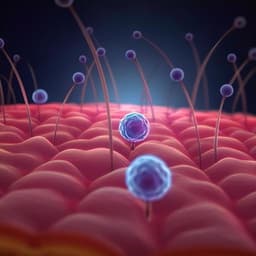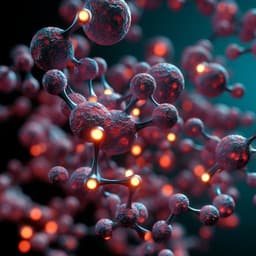
Biology
A partially self-regenerating synthetic cell
B. Lavickova, N. Laohakunakorn, et al.
Discover groundbreaking advancements in synthetic biology with Barbora Lavickova, Nadanai Laohakunakorn, and Sebastian J. Maerkl’s research on partial molecular self-regeneration in synthetic cells. This study reveals how a minimal transcription-translation system can recreate essential proteins from DNA, sustaining activity for over a day and laying the groundwork for self-replicating cells.
Related Publications
Explore these studies to deepen your understanding of the subject.







